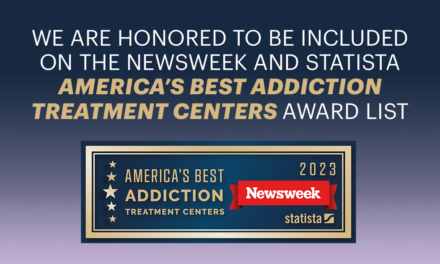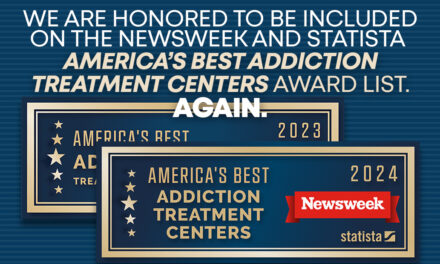Have you ever wished you could see into the future? It might be a handy talent to have, right? And not just because you might be able to discover which obscure stock to buy now or what the numbers will be in an upcoming lotto drawing.
If you could see the future, you might be able to avoid making catastrophic mistakes that could upend your life. For example, you might see that getting addiction treatment right now instead of putting it off (again!) will save you a lot of complications in the future–and perhaps save your life.
Now, you might be thinking that if you could truly look into the future you would have stopped yourself from ever taking that first drink or drug. That might be the case, but so often the initial stages of substance use seem totally innocuous. Oh, sure, you might feel woozy or hungover, but that doesn’t seem like a big deal after it fades.
Jump forward in time a bit, however, and you would likely see that a substance use disorder is, in fact, a big deal.
How do we know? Can we see into the future?
Well, no. But a substance use disorder only becomes more severe as time goes on. We can’t see the specific future, but we can report what many folks have experienced. We hope it serves as a cautionary tale—and, if necessary, a prompt to get the help you need sooner rather than later.
The Switch from Want to Need
When you first start drinking or using drugs, the odds are good that you feel wholly in control of what you are doing. You are making conscious choices about the substances you are putting into your body. Sure, you might be aware that there is some risk, but by and large, you likely feel on top of the situation.
For whatever reason—to be sociable, to get some stress relief, to lower your inhibitions, to achieve a feeling of euphoria, etc.—you have decided to use drugs or alcohol. And each time you do feels just as intentional as the last time.
Until it doesn’t feel intentional any more. At a certain point, you likely “need” the substance as much—if not more—than you want it.
The Decline in Physical and Mental Health
No matter what substance is in play, prolonged use will eventually lead to physical and mental health problems—some of which are life-threatening. And as your physical and mental well-being is compromised, you may find that other aspects of your life start to fall apart as well.
For example, you might start struggling to keep up with your responsibilities at work or at school. Some of your relationships might become strained or crumble altogether. You might start having financial difficulties—perhaps related to your problems at work, the ongoing cost of your substance use (especially as you build up a tolerance and need more and more of a substance to achieve the same feeling it originally provided), or a combination of the two.
The Withdrawal Trap
As you begin to notice more and more health problems and difficulties in your daily life, you may decide that you need to stop using drugs or alcohol. That is a good call—but it can be a whole lot easier said than done.
That’s because withdrawal symptoms can be devastatingly difficult to withstand. Despite your best intention to give up the substance or substances you have been using, the symptoms of withdrawal might send you right back to drugs or alcohol as a way to escape the awful feelings that arise when you try to quit on your own.
At this point you have arrived in a tricky spot. Quitting and not quitting seem like equally terrible answers to your dilemma.
Fortunately, there is a path forward.
Reclaim Your Future by Reclaiming Your Sobriety
At The Aviary Recovery Center near St. Louis, MO, we can see you through the rigors of withdrawal via our medically supervised approach to detoxification. Once the drugs or alcohol are out of your system, we provide a robust rehabilitation experience grounded in individual and group therapy. During rehab, we will also identify and provide treatment for any co-occurring mental health disorders that might be tangled up with your substance use disorder.
As we have noted, we can’t predict the future. But we can say with confidence that your sober self has a much better chance of building and maintaining a joyful life than a version of yourself who is under the influence of drugs or alcohol. When you are ready to get started, we are ready to help you regain your sobriety.










